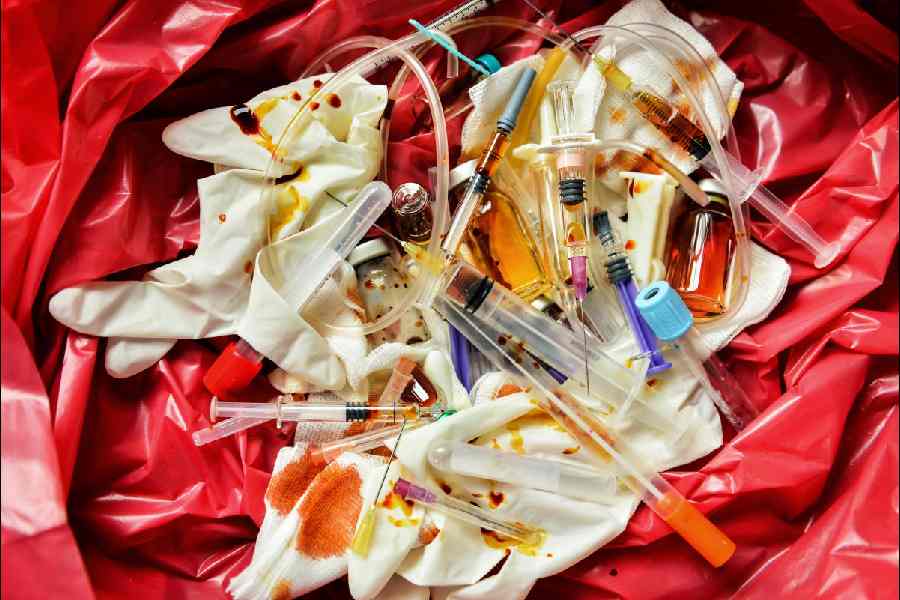The Kolkata Municipal Corporation (KMC) is planning to start collecting biomedical waste from healthcare establishments and set up a plant to handle it, mayor Firhad Hakim said on Wednesday.
Biomedical waste include syringes, scalpels, discarded medicines, cotton swabs, blood, body fluid and anatomical wastes like tissues, body parts and organs.
Sandip Ghosh, the former principal of RG Kar Medical College and Hospital, is under the scanner for the way biomedical waste from the hospital was disposed of.
There have been allegations of leaks in the system and that the hospital’s biomedical waste was sold off in the market at higher rates.
Hakim said on Wednesday that the KMC did not have the required infrastructure to handle biomedical waste.
“We can build a biomedical waste plant. At present, we have to dispose of the biomedical waste generated in our health facilities by paying a fee,” he said.
A KMC official said they will invite bids to hire a consultant who will help KMC get the permissions, file applications and prepare a detailed project report (DPR) on how to go about the project. A pre-bid meeting has been held.
A hospital or a healthcare establishment is supposed to segregate biomedical wastes into three parts.
Waste sharps including metals must be kept in a white bag; catheters, urinary bags and intravenous tubes should kept in a red bag and soiled waste, anatomical waste and discarded medicines should be kept in a yellow bag, according to the Biomedical Waste Management Rules, 2016.
According to the Annual Report on Biomedical Waste Management for 2022, West Bengal produced 38,886.1kg of biomedical waste every day.
Sources said 193kg of waste is generated by the primary health centres, hospitals and other healthcare facilities managed and run by the civic body.
“There are three agencies that collect the biomedical waste in Bengal. A fourth one will start work soon. They need to obtain consent and authorisation from the state pollution control board before bidding to collect the waste,” said an official of the pollution control board.
The state health department has fixed a rate for the collection of waste. The hospitals pay the agencies as per the rate fixed for collecting waste.
The collected waste is then processed as per biomedical waste rules.











